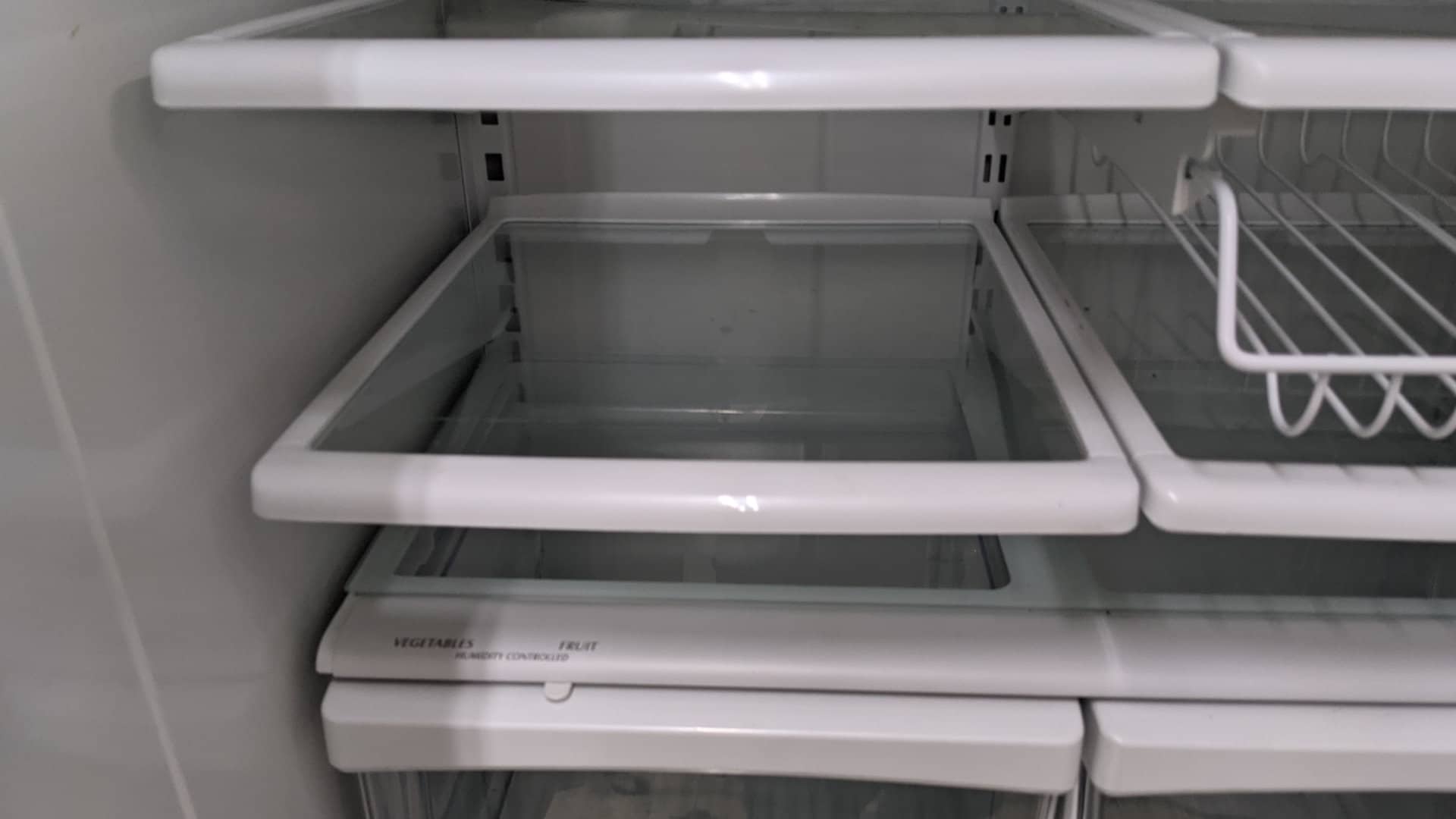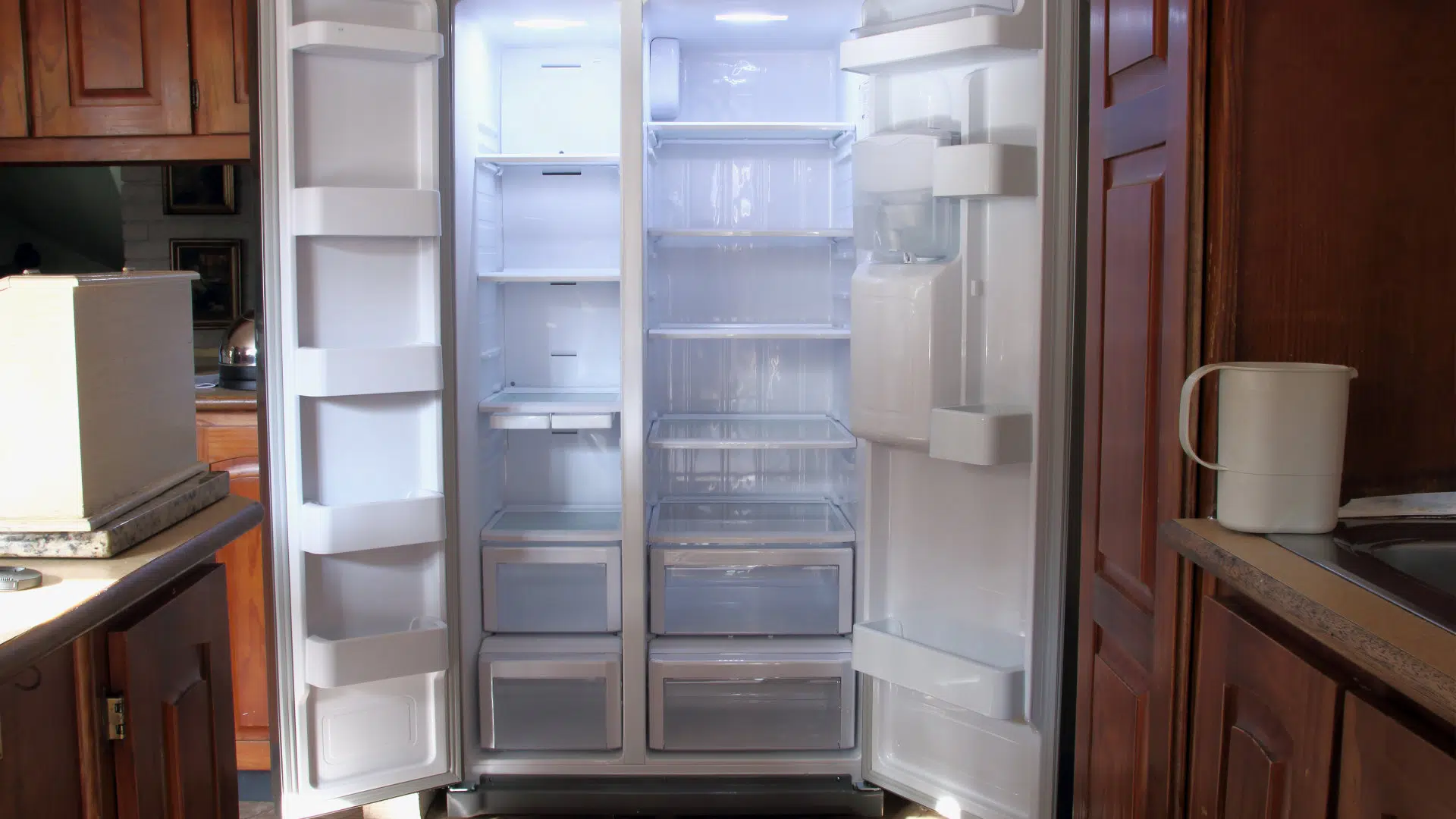Is your refrigerator making a knocking sound that you just can’t ignore? That unexpected noise coming from your fridge can be more than just annoying—it might be a sign that something needs your attention.
You rely on your refrigerator every day to keep your food fresh and safe. So, when it starts knocking, it’s natural to wonder what’s wrong and whether it’s something you can fix yourself or if you need a professional. You’ll discover the common reasons behind that knocking noise, easy steps to diagnose the issue, and simple DIY fixes to get your fridge back to quiet and smooth operation.
Keep reading, because the last thing you want is for a small problem to turn into a costly repair. Your peace of mind—and your food—depends on it.

Credit: paradiseapplianceservice.com
Common Causes
Hearing a knocking sound from your refrigerator can be frustrating and worrying. Several common issues can cause these noises. Understanding these causes helps you identify the problem early. It also guides you on what to check or fix. Below are the most frequent reasons for a knocking sound in your fridge.
Compressor Noise
The compressor pushes refrigerant through the system. It can create knocking if it struggles to start or run. Worn-out compressor parts may cause unusual sounds. A failing compressor may also overheat and make noise. Listen carefully to detect if the sound comes from the compressor area.
Fan Motor Issues
Refrigerators have fans that cool the compressor and circulate air. A fan motor with damaged blades or loose parts can knock. Dirt or ice can block the fan blades, causing noise. Sometimes, the fan motor bearings wear out and make knocking sounds. Regular cleaning helps keep fans running smoothly.
Ice Buildup
Ice can form around the evaporator fan or coils. This buildup may cause the fan blades to hit the ice. The impact creates a knocking or tapping noise. Defrosting the freezer can clear the ice and stop the sound. Ice buildup often happens if the door seal is damaged or frequently opened.
Loose Parts
Vibrations from the fridge can loosen screws and panels. Loose parts inside or outside the refrigerator cause knocking sounds. Check mounting screws on the compressor and fan assembly. Tighten any loose components carefully to stop the noise. Also, inspect shelves and trays for secure placement.

Credit: viaappliance.com
Identifying The Sound
Hearing a knocking sound from your refrigerator can be puzzling. Identifying the exact nature of the noise helps decide the next steps. Some sounds are normal, while others signal a problem. Understanding these differences keeps your fridge running smoothly and avoids costly repairs.
Normal Operational Noises
Refrigerators often make sounds like humming, clicking, or soft knocking. These usually happen when the compressor or fans start and stop. Expansion and contraction of metal parts can also cause gentle knocking. These noises are brief and do not repeat frequently.
Signs Of Trouble
Loud, constant knocking or banging sounds may indicate issues. The compressor or fan motors might be loose or damaged. Ice buildup can cause fans to hit frozen chunks, creating knocking sounds. A failing compressor may also produce unusual noises. Pay attention to any changes in sound volume or pattern.
When To Seek Help
Persistent knocking noises that do not stop need professional attention. If the fridge is not cooling properly or making grinding or scraping sounds, call a technician. Strange noises combined with warm temperatures or leaks signal urgent repair. Early diagnosis prevents further damage and costly replacements.
Quick Diy Fixes
Hearing a knocking sound from your refrigerator can be annoying. Many times, simple fixes can solve the problem quickly. These quick DIY steps help you avoid costly repairs and keep your fridge running smoothly. Follow these easy checks to stop the noise and improve your fridge’s performance.
Defrosting The Freezer
Ice buildup can cause knocking sounds in your fridge. Turn off the refrigerator and open the freezer door. Let the ice melt naturally or place bowls of hot water inside to speed up the process. Remove all melted water with a cloth. This clears ice that might block moving parts and cause noise.
Cleaning Condenser Coils
Dirty condenser coils make your fridge work harder and can cause noises. Unplug your refrigerator and find the coils at the back or underneath. Use a coil brush or vacuum cleaner to remove dust and debris. Clean coils help your fridge run quietly and efficiently.
Tightening Loose Screws
Loose screws can create knocking sounds during fridge operation. Check screws on the compressor, fan, and mounting brackets. Use a screwdriver to tighten any loose screws carefully. This simple step stops rattling noises and secures parts in place.
Inspecting Fan Blades
Fan blades may hit ice or debris, causing knocking sounds. Locate the evaporator and condenser fans inside your fridge. Turn the blades by hand to check for obstruction or damage. Remove any debris carefully. Replace damaged blades to keep your fridge quiet and cool.

Credit: www.youtube.com
Preventive Maintenance
Preventive maintenance helps keep your refrigerator running quietly and efficiently. Small steps can stop knocking sounds before they start. A clean and balanced fridge avoids many common issues.
Simple care routines extend the life of your appliance. Watch for early signs of trouble to fix problems fast. Routine checks save money on repairs and energy bills.
Regular Cleaning Tips
Dust and dirt build up on coils and fans cause noise. Clean condenser coils every three months using a vacuum or brush. Wipe down fan blades gently to remove debris. Keep the interior free from spilled food and frost buildup. Clean door seals with warm soapy water for a tight close.
Leveling Your Refrigerator
An uneven fridge can cause parts to knock or vibrate. Use a level tool to check the fridge’s position on the floor. Adjust the front or back feet until the fridge stands firm and balanced. A stable fridge reduces motor strain and loud sounds. Check leveling after moving or cleaning the fridge.
Monitoring Ice Maker Function
Ice makers can cause knocking if jammed or faulty. Remove ice buildup inside the ice bin regularly. Check the ice maker’s motor and ejector arm for smooth motion. Listen for unusual sounds during ice production. Fix or replace parts if the ice maker causes noise.
When To Call A Technician
Refrigerator knocking sounds can signal a serious problem. Knowing when to call a technician saves time and prevents bigger issues. Some noises are normal, but others require professional help. Watch closely for signs of trouble to act quickly.
Compressor Failure Signs
The compressor is the fridge’s heart. If you hear loud knocking near it, this might mean failure. Other signs include the fridge not cooling well and frequent stopping and starting. Overheating or a sudden rise in your energy bill also points to compressor problems. A technician can diagnose and fix these issues safely.
Persistent Loud Noises
Loud knocking that keeps happening is a warning sign. Normal fridge sounds are soft and brief. Constant loud noises can come from loose parts or damaged fans. They might also indicate internal mechanical faults. Ignoring these sounds can lead to more damage. A professional can identify the source and repair it properly.
Electrical Issues
Buzzing or clicking noises might mean electrical problems. Faulty wiring or failing components can cause these sounds. Electrical issues can be dangerous and cause the fridge to stop working. If you notice sparks, burning smells, or your breaker trips, call a technician immediately. Expert help ensures safety and proper repair.
Frequently Asked Questions
How Do I Fix The Knocking Sound In My Fridge?
Check for ice buildup and defrost the freezer. Inspect and clear fan blades from debris. Tighten loose screws on the compressor or fan. Clean condenser coils regularly. Ensure the fridge is level to prevent knocking sounds.
What Are Signs Of A Failing Fridge Compressor?
Signs of a failing fridge compressor include poor cooling, strange noises, frequent cycling, overheating, and increased energy bills. Spoiling food and tripping circuits also indicate compressor issues.
Why Is My Frigidaire Refrigerator Making A Knocking Sound?
A knocking sound in your Frigidaire fridge often comes from fan motors hitting ice or debris. Check and defrost ice buildup. Inspect fans for damage or obstruction. Tighten loose screws on the compressor or fan assembly. Clean condenser coils regularly to prevent strain.
When Should I Worry About My Fridge Noises?
Worry about fridge noises if you hear grinding, scraping, loud rattling, or continuous buzzing. These may signal fan or compressor issues. Check for ice buildup, loose parts, or obstructed fans. Unusual sounds with poor cooling or frequent cycling need prompt attention to avoid costly repairs.
Why Is My Refrigerator Making A Knocking Sound?
A knocking sound can come from fan motors hitting ice or debris inside the fridge.
Conclusion
A knocking sound in your refrigerator signals a need for attention. Check fan motors and ice buildup first. Clean coils and tighten loose parts regularly. Early care helps avoid bigger repairs later. Stay alert to unusual noises for better fridge health.
Small fixes keep your fridge running smoothly. Don’t ignore sounds—they often warn of a problem. Keep your kitchen quiet and your food fresh.
